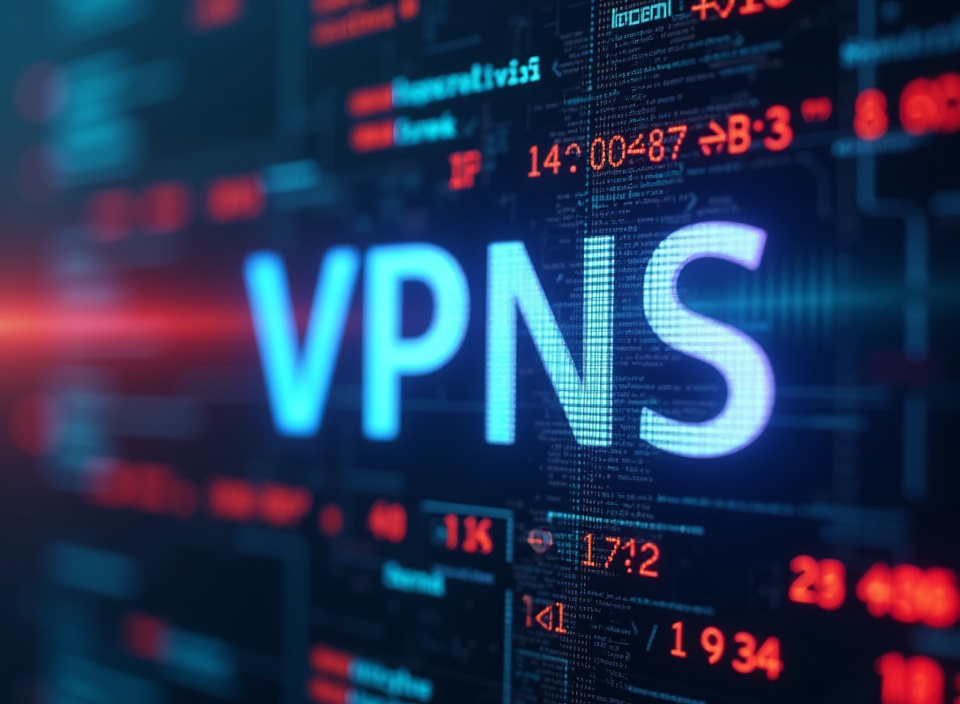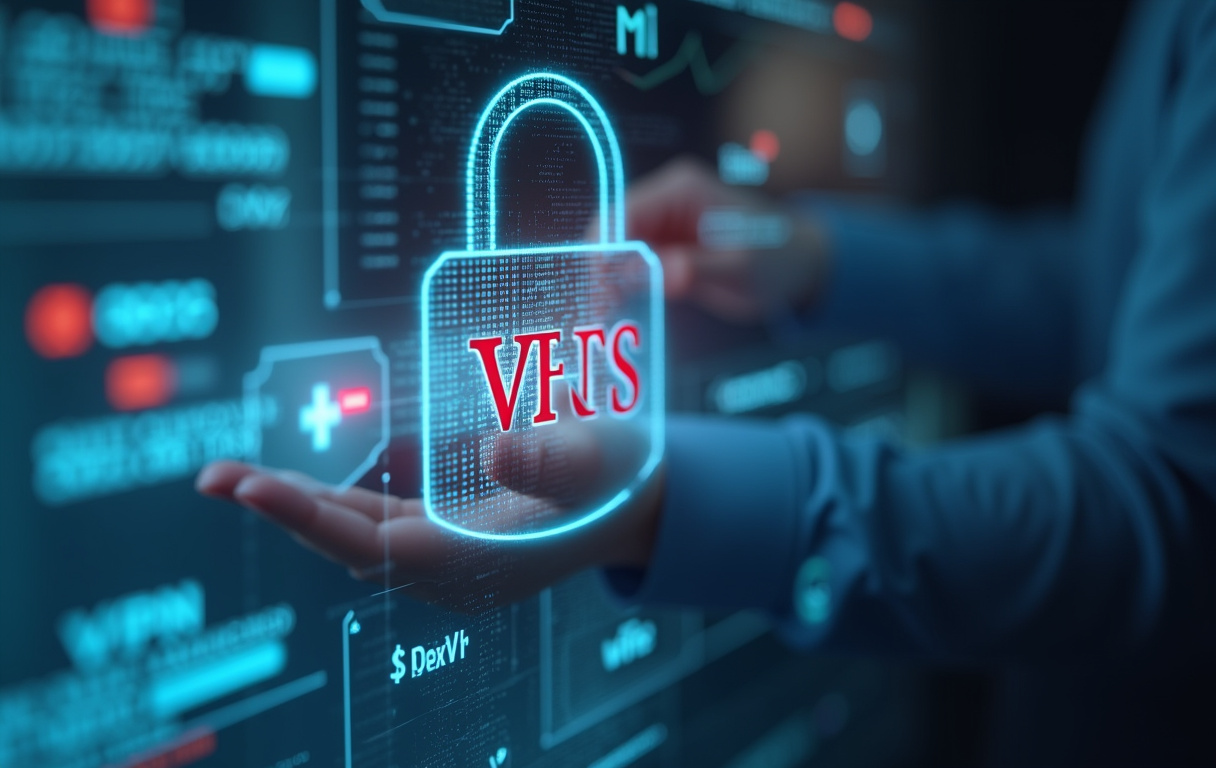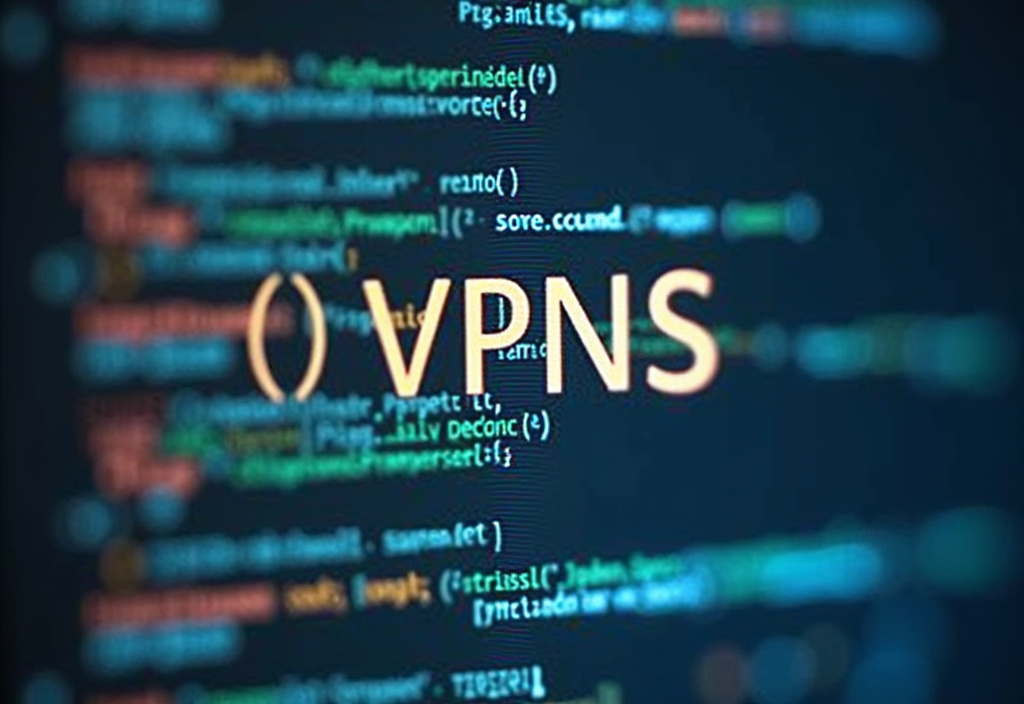VPNs for Motorsport Teams: Securing Competition Data

Table of Contents
VPNs for Motorsport Teams: Securing Competition Data
The world of motorsport is a high-stakes arena where victory hinges on a razor's edge of performance, innovation, and strategic brilliance. Success demands not only exceptional engineering and driving skill but also meticulous data collection, insightful analysis, and a secure environment for collaboration. In this data-driven domain, information is the ultimate currency, and protecting sensitive competition data is paramount.
From telemetry readings to aerodynamic simulations, every piece of information holds the potential to unlock a competitive advantage. However, this increasing reliance on data creates a formidable challenge: how to ensure its security in an environment where adversaries are constantly seeking an edge. Imagine a rival team intercepting telemetry data revealing a critical weakness in your car's suspension setup, or stealing your carefully crafted race strategy outlining pit stop timings and tire choices.
The consequences could be devastating. Enter the Virtual Private Network (VPN): a powerful tool that acts as a digital fortress, safeguarding sensitive information and empowering motorsport teams to operate with confidence in an increasingly vulnerable digital landscape. This article delves into the vital role VPNs play in enhancing competition data security, protecting team strategy, ensuring data integrity, and ultimately, boosting performance.
We'll explore how VPNs function to encrypt data transmissions, mask IP addresses, control network access, and mitigate the risk of cyberattacks, empowering motorsport teams to safeguard their valuable assets. In today's digitally interconnected world, motorsport teams face a complex network security challenges. Teams operate across a global network of race tracks, wind tunnels, headquarters, and testing facilities, creating numerous points of vulnerability.
Data is transmitted across various networks, including public Wi-Fi hotspots, potentially unsecured connections at temporary race venues, and even corporate networks that may not be fully protected. These networks become potential entry points for malicious actors seeking to intercept sensitive data. A VPN operates by establishing a secure, encrypted tunnel for all data transmitted between a team's various locations and devices.
Essentially, it creates a private and protected pathway through the internet, ensuring that every byte of data is shielded from prying eyes. This encryption is paramount to thwarting unauthorized access, as it renders the data unreadable to anyone without the decryption key. Imagine a team engineer transmitting critical car setup data from a remote race location back to the headquarters.
Without a VPN, this data could be intercepted and potentially exploited by a competitor. With a VPN, the data is encrypted, guaranteeing its confidentiality. Beyond encrypting data, VPNs are critical for obscuring a team's online presence.
Every device connected to the internet has a unique IP address, which can be used to pinpoint its location and potentially reveal the identity of its user which brings the team at risk. The VPN masking abilities route traffic through a server located in a different geographic region which makes it difficult to track the originating IP Address, adding another layer of security. Motorsport VPN's are not merely security tools; they are strategic enablers empowering teams to collaborate, innovate, and compete with peace of mind.
By shielding sensitive data from interception, masking online activities, and controlling network access, VPNs empower motorsport teams to focus on what matters most: maximizing performance and achieving victory.
The fundamental role of a motorsport VPN lies in creating an impenetrable, encrypted pathway for the transmission of a team's data. This encryption is the bedrock of data security, ensuring that everything from telemetry readings streaming from the race car to intricate design schematics originating from the R&D department remains strictly confidential. Imagine the sheer vulnerability of unencrypted data traversing public Wi-Fi at a bustling race circuit.
Without a VPN, sensitive information would be akin to an open book, easily accessible to anyone with the right tools and malicious intent. The encryption algorithms implemented by leading VPN services are mathematically complex, rendering intercepted data nothing more than gibberish to unauthorized parties. This essentially erects a digital shield around the team's data, effectively thwarting any attempts at eavesdropping or data theft.
Consider a scenario where a team is developing a groundbreaking new aerodynamic component. The design specifications, performance data, and simulation results are all incredibly valuable and could provide a significant advantage to a competitor. Transmitting this information without a VPN would be a reckless gamble, potentially exposing the entire project to compromise.
With a VPN, however, the data is securely encrypted, ensuring that only authorized personnel with the correct decryption keys can access it. Beyond simple protection, a critical function that a Motorsport VPN provides is hiding behind the true IP Address. An IP Address can identify devices and leak it's location, it is imperative to keep this secure in order to avoid the entire team from being vulnerable.
Furthermore, a Motorsport VPN can also mitigate against DDoS attacks that can overwhelm a network with traffic, thus mitigating any access to secured data. By routing through the VPN server, any excess from a DDoS attacks prevents any disruption. Choosing a suitable VPN is heavily reliant on the geographical distribution of the team.
Servers strategically located are essential for speed and reliability. Selecting a VPN is also important to make sure it can handle intense data requirements, along with this it should be selected based on it's server locations to ensure the correct data and privacy needs. Some VPN's offer dedicated servers ensuring there are safe and secure connections but they can come with a cost and may not be cost effective.
It must be understood that a Motorsport VPN encrypts data and protects online activity. The encryption algorithms turn the data unreadable so competitors dont steal any information that is crucial to a teams data points. In the world of racing where data is the name of the game.
The security protects against the vulnerabilities of public networks ensuring data is only seen by the authorized employees only. VPN acts as this by masking IP making it harder for individuals to pinpoint where the data is coming from. By hiding IP it is difficult for attackers as it deters attacks.
In conclusion, a motorsport VPN is an integral part of protecting telemetry analysis and confidential data making it secured from unauthorized parties. With the growing online threats ensuring the data and traffic has this protection. It is a crucial part in the industry that can protect against cyber security attacks.
Team strategy protection lies at the very heart of securing a motorsport organization in today's ultra- competitive arena. Motorsport is all about those carefully intricate strategies that take hours of analyzing and simulations. Each race is designed with meticulous precision and any opponent can exploit this which reduces chances of success.
A Motorsport VPN ensures constant monitoring and protection of these strategic assets, it encrypts team member's data and ensuring all information is safe from prying eyes. This protection keeps secure video conferences and documents so that strategy are only accessed by those who it concerns. Protecting these conversations are crucial because it's critical of these collaborations.
Motorsport teams are increasingly working from cloud platforms because they have the easy accessibility. VPN's provide teams security when they are working as it ensures the secure way of exchanging information for things like fuel consumption or tire changes. Every step of the race the team members are talking and that data needs to be on lock down.
The Motorsport VPN provides that layer of protection. The VPN authenticates users when teams enter their credentials before they can access to sensitive information. This is crucial to protect internal data breaches and limiting who has access to these files.
In this digital age any communication or post race needs the security implemented in order to keep strategies safe. The VPN protects team strategies to make sure only authorized personnel have files. Many racing teams use real time data and relay real time data on drivers and cars.
The Motorsport VPN becomes the integral part of protecting this information. By masking IP and encrypting data transmission the VPN is crucial for monitoring this and making sure it's sent through a secure channel. Competitors are always going to be trying to find ways to gain an edge for that matter securing the telemetry data to prevent that unauthorized access can't be stressed enough because data has made way for performance.
Along with that security also allows teams can adapt to changing conditions without worrying about security breaches and making quick adjustments to their work. In the environment of racing where every decision can change a game at any moment during the competition, VPN has that flexibility to protect at all costs. Furthermore, a huge asset of VPN is to make sure the data is secure and compliant to different things like regulations and requirements when working and competing in different countries.
This is important because it could potentially avoid legal and financial troubles.VPN solutions can become a tool, it gives peace of mind to focus on racing knowing their data is secured to winning. In the modern era the game has changed with how data is transferred it is crucial teams follow closely with best security practices like a motorsport VPN so that the strategies stay in house. If a competitor intercepts strategy can gain access to tire choices and fuel and exploit it.
VPN ensures safety to the team members and makes sure their data is protected. They are secured so the focus is on the game.
VPNs for Game Developers: Securing Multiplayer Services
Data integrity, the assurance that information remains accurate, consistent, and unaltered throughout its lifecycle, is paramount for motorsport teams. Decisions made on flawed or compromised data can lead to disastrous outcomes, impacting everything from car performance to race strategy. A motorsport VPN plays a critical role in preserving data integrity by protecting against unauthorized modifications, data corruption during transmission, and malicious interference.
Imagine a scenario where a competitor attempts to inject false telemetry data into a team's system. If successful, this could lead to incorrect car setup adjustments, ultimately hindering performance and potentially leading to a race retirement. A VPN helps to prevent such attacks by encrypting data transmissions and authenticating users, ensuring that only authorized personnel can access and modify sensitive information.
Furthermore, VPNs can also help to detect and prevent data corruption during transmission. Data corruption can occur due to various factors, such as network congestion, hardware malfunctions, or software bugs. A VPN with built-in data integrity checks can identify and correct errors in transmitted data, ensuring that the information received is accurate and reliable.
This is particularly important when transmitting large datasets, such as simulation results or aerodynamic analyses, which can be highly susceptible to corruption. Maintaining data integrity also requires robust access control measures. A motorsport VPN can be configured to restrict access to sensitive data based on user roles and permissions.
This ensures that only authorized personnel can view, modify, or delete specific data files. For example, only senior engineers may be granted access to modify car setup parameters, while junior engineers may only have read-only access. This helps to prevent accidental or malicious modifications that could compromise data integrity.
In addition to protecting against external threats, a motorsport VPN can also help to prevent internal data breaches. A disgruntled employee, for example, may attempt to steal or sabotage sensitive data. A VPN with strong access control measures and activity logging capabilities can help to detect and prevent such internal threats.
By monitoring user activity and auditing access logs, teams can identify suspicious behavior and take appropriate action to mitigate the risk of data breaches. The benefits of a VPN extend beyond data privacy and security to include enhanced data integrity. By preventing unauthorized modifications, detecting and correcting data corruption, and controlling network access, VPNs empower motorsport teams to make informed decisions based on accurate and reliable information.
This, in turn, can lead to improved car performance, optimized race strategies, and ultimately, a greater chance of success. Further adding to the importance of data integrity and the use of VPNs: regulatory compliance. Given the globally diverse nature of Motorsport events, understanding that privacy is paramount and ensuring proper compliance to regulatory requirements from different countries is key to data integrity.
Failing to comply could present many legal and financial woes, making VPN usage that much more important.
Enhancing Motorsport Performance with Secure Data Access
VPNs for sports, particularly in the high-pressure environment of motorsport, can significantly boost performance. The seamless and secure access to data that a VPN provides allows teams to streamline their operations, react swiftly to changing conditions, and collaborate effectively across geographical boundaries. This enhanced agility and responsiveness translates directly into improved performance on and off the track.
Consider the scenario of a race engineer at the track needing to access a critical simulation file stored on a server back at headquarters. Without a VPN, accessing this file could be slow, unreliable, and potentially insecure. With a VPN, the engineer can establish a secure and high-speed connection to the headquarters network, allowing them to quickly download the file and make informed decisions about car setup.
This ability to access data in real-time can be crucial for optimizing performance during practice sessions, qualifying, and the race itself. Moreover, VPNs facilitate efficient collaboration between team members regardless of their location. Designers, engineers, strategists, and drivers can seamlessly share data, communicate ideas, and work together on solutions, fostering a more cohesive and productive team environment.
This collaboration is essential for identifying problems, developing innovative solutions, and making quick decisions under pressure. For example, a driver providing feedback on car handling can be instantly relayed to engineers at headquarters, who can then analyze the data and suggest adjustments to the car setup. This iterative process of feedback and adjustment is greatly accelerated by the use of a VPN, allowing teams to fine-tune their car performance and gain a competitive edge.
Performance enhancements also extend from the ability to improve the ability to analyze competitor’s data during VPN analysis as well. As data across tracks and vehicles is collected during competitions and practices, having those data point comparisons with what other racers do can bring performance and understanding up as long as it protects sensitive assets. Having analytical insights over the competition leads to well improved understanding and can result in better strategies, but VPN data security has to be up to par.
Furthermore, VPNs can improve the reliability and stability of network connections, particularly in challenging environments. Race tracks, for example, can be notoriously congested with wireless traffic, leading to dropped connections and slow data transfer speeds. A VPN can help to mitigate these issues by optimizing network traffic and providing a more stable and reliable connection.
This is crucial for ensuring that critical data streams, such as telemetry readings and live video feeds, are not interrupted during races. Having the data available at real time is crucial since the engineer would also need to access the information to make informed decisions relating to the race as fast as possible. As VPN enables smooth communication and collaboration among members of staff, this VPN makes data transfer with ease and ensures team is flexible.
The VPN contributes to better performance to the race itself. In conclusion, the integration of VPNs is about protecting data and strategies; it's truly about the entire transformation and how racing teams operate and win. By optimizing the entire safety data and information and security VPN helps teams get ahead and race with complete security.
Stay Updated
Get the latest VPN news, tips, and exclusive deals to your inbox.




